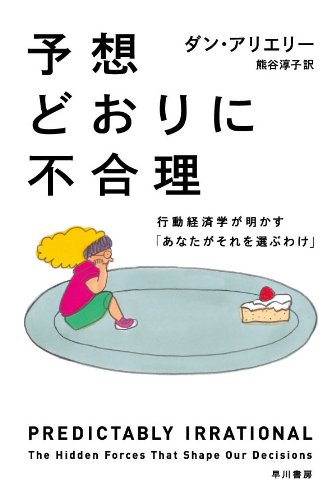- Published on
Why do even honest people end up making "a little cheating"? ~If you don't touch cash, your guilt will disappear~
Source: Dan Ariely, "Absolutely as Imaginable" (Hayakawa Publishing)
Roughly speaking
- We all want to think of ourselves as "honest." Therefore, I will slander just a little, within the limits that my self-image does not break down.
- I drink coke in a shared refrigerator without any worries, but I don't steal cash from my wallet. Just one step away from cash will dramatically lower the psychological hurdle for fraud.
- As the experiments that reminding us of the "Ten Commandments" have zero injustice, our morality can be awakened by a small "trigger."
Introduction: The psychology of stealing cola but not stealing cash
Let's say someone has a can of cola in a shared refrigerator at work. If you are thirsty, you may drink it silently. So what if there was a 500 yen coin instead of cola? Few people will put it in their pocket.
Why do one side easily puts out and hesitates on the other side even if it is of the same value? This strange psychological mystery is the surprising essence of human "injustice" that Dan Ariely explores in "Antifiable Absurdity."
He has proven in numerous experiments that we are not fraudulent with simple "cost-benefit analysis." There are more complex, human mechanisms at work in our minds.
Your "fudge factor"
The heart of Ariely's theory lies in the fact that we weigh our desire to "be profitable" with our self-image that we are an honest person. And, to the extent that it does not undermine your self-image, I will cheat just a little. He called this tolerance the "fudge factor."
In his famous "matrix task" experiment, participants were asked to solve simple calculation problems and paid according to the number of correct answers. However, the self-report system is used, and the answer sheet is shredded, so even if you squeal it will not be discovered. As a result, most people pretended that they answered "correctly" a little more than if they had filed an honest statement. No one committed any major fraud, but many people slandered "just a little."
This is the true nature of the modest injustice we are forgiving ourselves.
The further you move away from cash, the more numb your guilt becomes.
Let's go back to the cola example at the beginning. Why does not cash reduce resistance to fraud? In an experiment with the queue task, Ariely found that simply changing the reward to "tokens" instead of cash would double the level of fraud.
If we take a step away from the concrete "money" of cash, our moral brakes will be surprisingly relaxed. This explains many of the fraudulent behaviors that lie in our daily lives, such as personal use of company equipment (pen and copy paper), a little bit of a waste to pay for expenses, and illegal copying of software. They just don't have the raw form of "cash," and we are expanding our fudge factor without feeling guilty.
[Improvement proposal] Just reminding me of the "Ten Commandments" and the silence disappeared.
So, is there any way to prevent this "small cheating"? Among Ariely's experiments, the most hopeful one was the experiment that tested the effect of "moral reminders."
Before starting the procession assignment, he asked a student in one group to "remember ten books he had recently read" and another group to "remember as many of the Old Testament's Ten Commandments." So, what will happen? In the latter group, misconduct has completely disappeared. (Even students who can't remember even one of the Ten Commandments!)
This also coincides with another experiment where fraud was dramatically reduced by simply having them sign "I'm honored and not fraudulent" just before the test. We can be surprisingly honest with just a little bit of morality.
This finding provides many suggestions, from individual self-control to the way compliance training is carried out in the company. Not only does it tie you down with rules, but it also designs a "start" that will turn people's consciences on. That may be the most effective way to prevent fraud.
Conclusion: Your morality is more flexible than you think
We are creatures who can change moral standards incredibly flexible depending on the situation we are in. It would probably be a mistake to believe you are an absolute honest person or to declare yourself an absolute evil person. Perhaps the important thing is to recognize the existence of a "fudge factor" hidden within you and consciously turn on your own morality when you are consciously moving away from cash.
[Actions to encourage action] How fragile and precious is human honesty? The chapter on fraud in "Expectedly Absurd" is a must-read for both individuals and organizations. In this book, please come and learn about the psychology of "cheating" that lies within you, as well as amazing tips for overcoming it.

